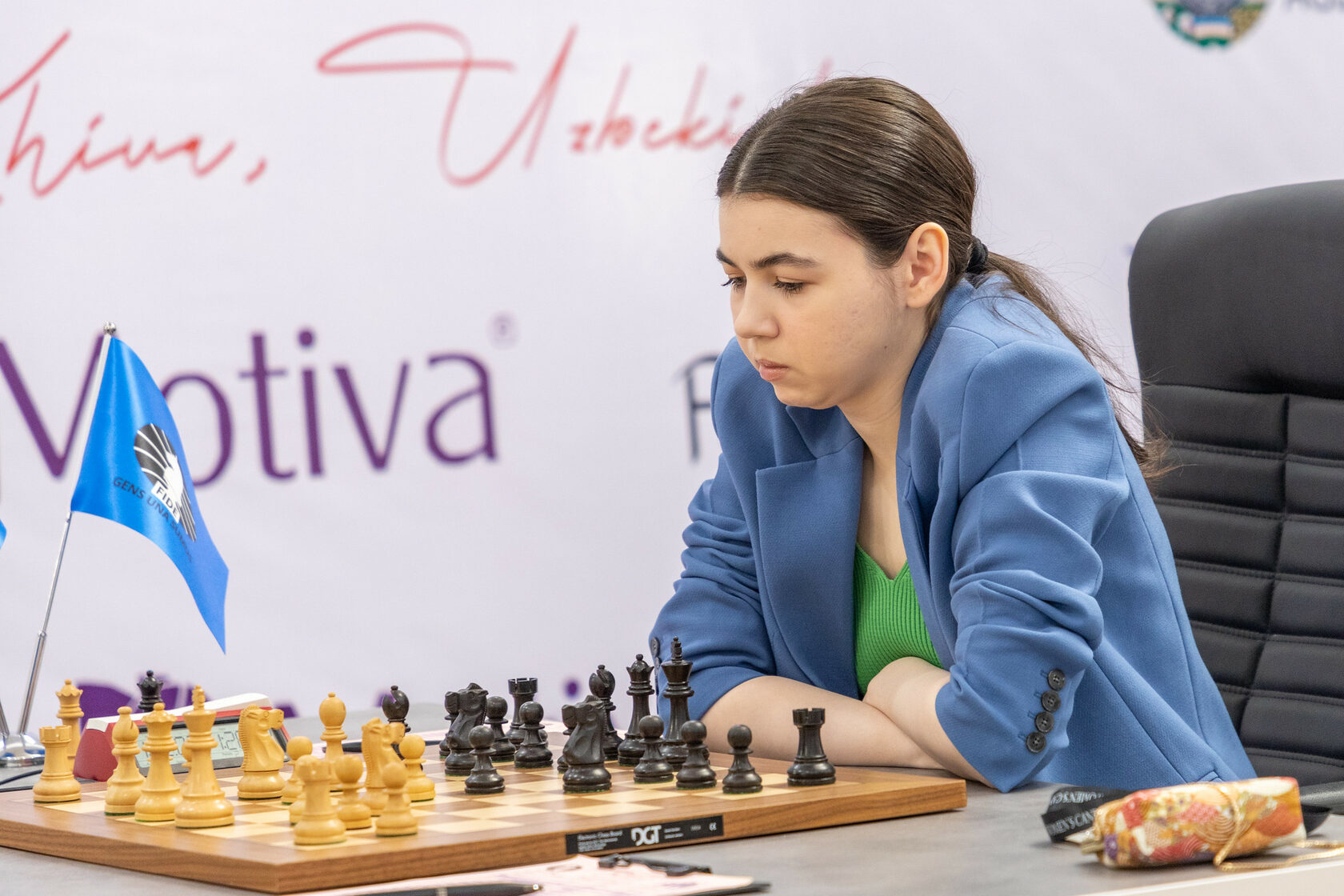WGM Nilufar Yakubbaeva, Uzbekistan’s number one female player, three-time national champion, zonal champion and recent prize winner at the 2022 Abu Dhabi Masters, was joined by young talent WFM Umida Omonova, U-12 silver cadet medallist and U-16 World rapid gold. Both of them qualified joint 1st-2nd in last year’s Uzbekistani Women’s Chess Championship, with Yakubbaeva taking the title on tiebreak.
Their choice were the opening moves 1.d4 Nf6 - even though Kosteniuk generally opens with 1.e4 – and the arbiter rapidly relocated the pieces on the starting squares, initiating the round.
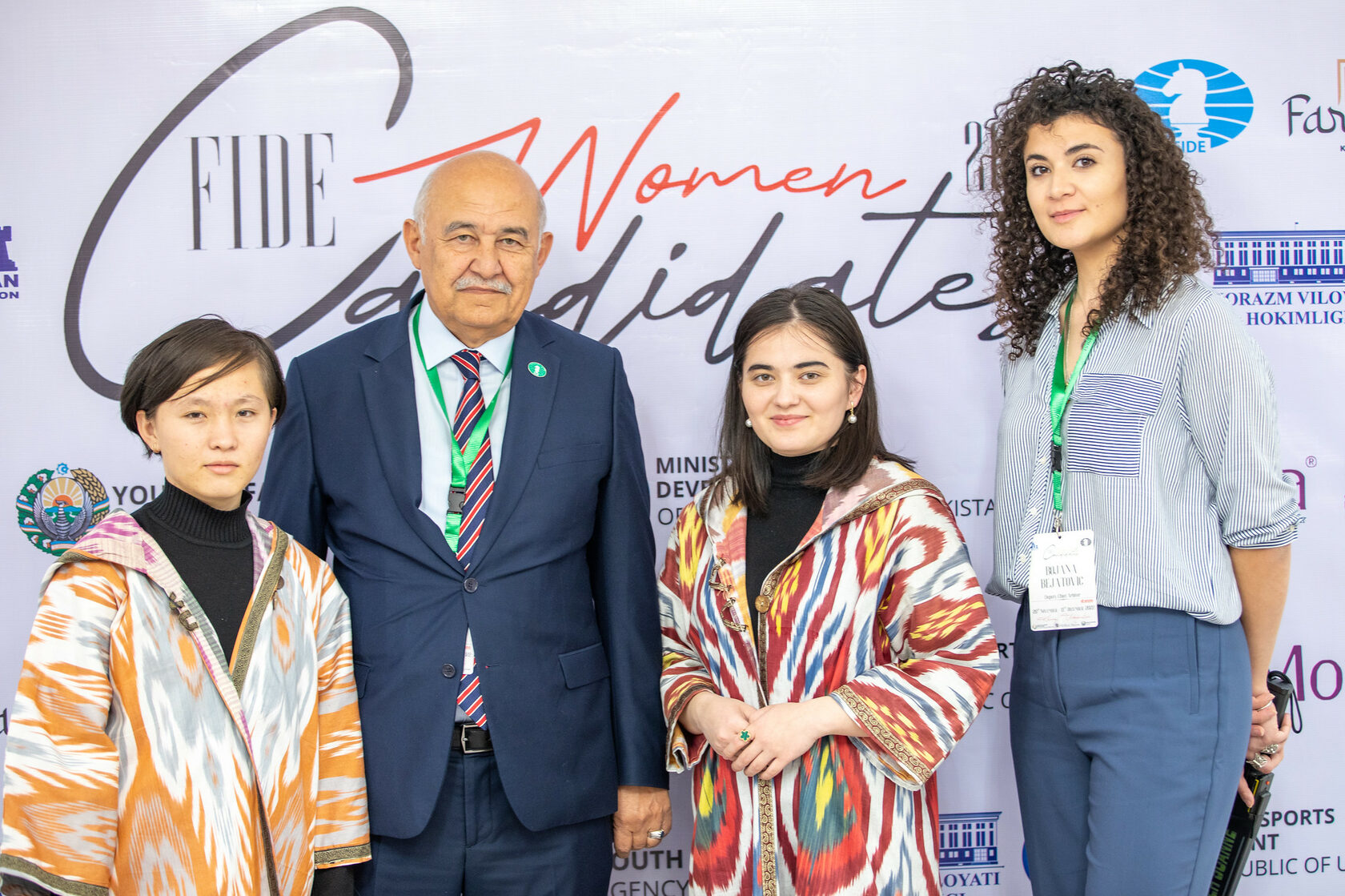
Alexandra Kosteniuk (GM 2521) vs Aleksandra Goryachkina (GM 2584) 0-1
A tough defeat for Kosteniuk. Her opening choice, the Italian Game “Giuoco Pianissimo”, left her with a small space advantage on the queenside and much more time on the clock: having had some issues in the first two games, it must have felt nice to enjoy an extra thirty minutes on move sixteen.
However, around move twenty-six Goryachkina invaded f4 with her knights, keeping the position dynamically balansed. Kosteniuk might have missed a chance to close the center with 28.e5 (suggested by the computer) and played 28.Kh2 instead. Goryachkina immediately swapped pawns on e4 and installed a very strong knight on d5.
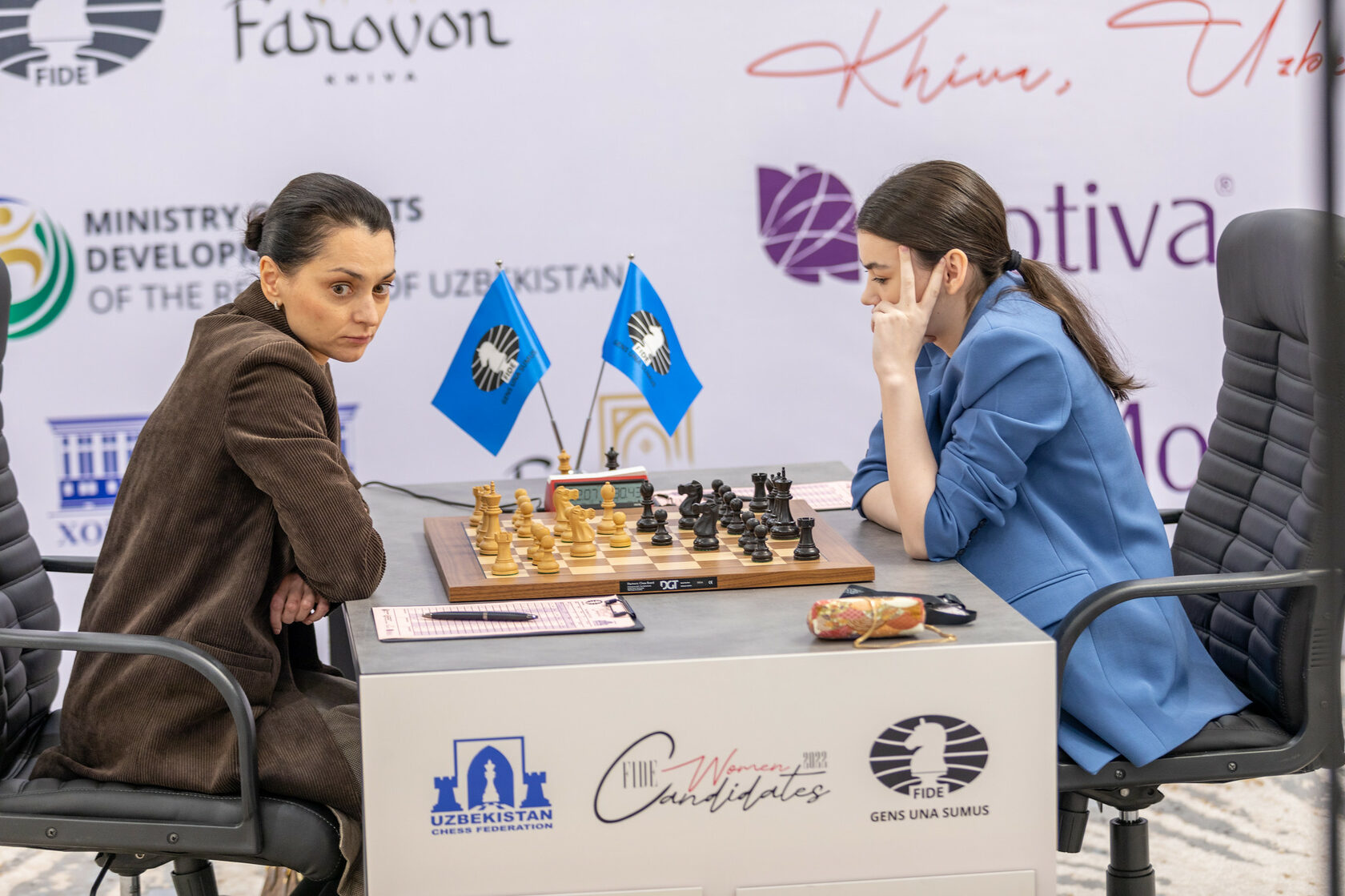
After the exchange of queen’s, the knight vs bishop ending was already slightly better for Black. Although a draw should be achieved with precise play, White’s position is typically more difficult to play. The key mistake was 42.Be1, which allowed Goryachkina to wrap up the game by penetrating with her king on the queenside. The computer barely holds the position with 42.Kg3, entertaining the idea Kh4-h5 in certain variations.
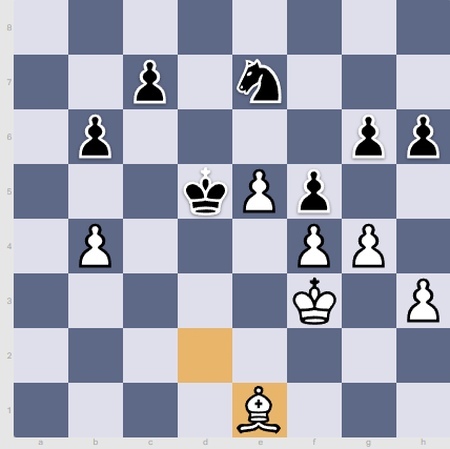
Visibly happy with the outcome of the game, Goryachkina attended the press. “Despite the fact that I came out of the opening slightly unsure, my opponent didn't seem to figure it out very well. So I managed to win somehow, even though I underperformed a little bit in the previous two games” were her first comments.
Asked about the critical moment of the game, she went on: “It's hard to say, because the position was not obvious and the one who makes more confident moves and understands the position, wins, and I was more confident. I had my chances in the first two games, and I just needed to calm down and keep playing at the same level, and it would be obvious that there would be chances, and so it happened”.
Aleksandra Goryachkina will have White in the fourth and final game: a draw will qualify her to the next stage while Kosteniuk is now in a must-win situation.
Tan Zhongyi (GM 2514 vs Kateryna Lagno (GM 2563) 0.5-0.5
Playing with Black, Lagno repeated the Queen’s Gambit Declined that she used in game one, but Tan Zhongyi decided not to go for the exchange variation. The trendy Vienna defence with 4…dxc4 was Lagno’s surprise choice: according to my database, she had never played before. Tan Zhongyi went for the main line and Lagno spent twenty minutes on the novelty 10…Qd8 (there are many elite games with 10…Qe7).
Surprised, Tan Zhongi went into the tank for twenty-five minutes, coming up with 11.Qa4, a line that gave her with a small edge. Nonetheless, with precise defensive play, Lagno exchanged queens and went into the ending. The position was completely fine: a symmetrical position with equal number of pieces and pawns.
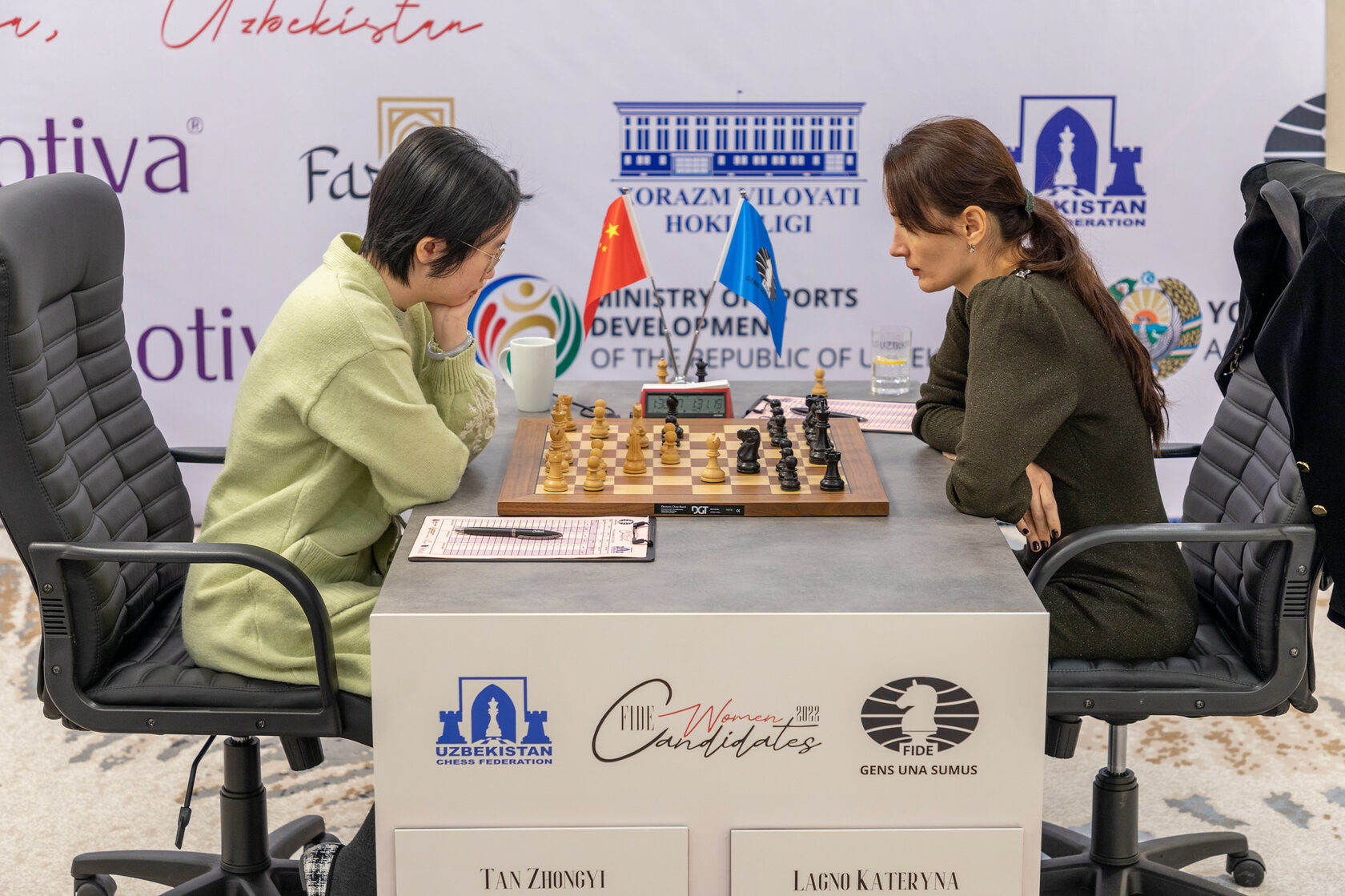
Just when a draw seemed to be the most likely outcome, Tan Zhongyi miscalculated. She played 24.Rc7, probably missing that after 24…Nc5 the bishop on e7 can’t be captured because of the back-rank mate. Fortunately for her, she was able to bail out into a rook ending, a clear pawn down.
There is a saying that “All rook endings are drawn”: frequently an extra pawn is not enough to win. This game confirms the sentence, although the computer does suggest that 37…f5! (instead of 37…Rb1) would still have left Lagno with very decent winning chances.
The fourth games of the quaterfinals are scheduled for Saturday, December 3rdnd at 3pm, and can be followed live with expert grand master commentary on FIDE Youtube.
In the case of a tie, players will return on Sunday for the rapid tiebreaks.

Tournament format and prizes
Under the new knock-out format, players in each of the two brackets or "pools" will play a four-game match (plus tie-breaks, if needed) in order to advance to the next stage, with the final match being played over the distance of six games. The prize fund for this pool is €70,000, while another €110,000 will be at stake in the Women's Candidates Final, raising the total to a record-breaking amount of €250,000.
Khiva
Established around 1500 years ago, and currently housing a population of more than 90.000 people, Khiva is the former capital of Khwarezmia, and one of the three Uzbekistan historical cities on the Silk road. The inner town, Itchan Kala, is encircled by brick walls, whose foundations are believed to have been laid in the 10th century. Mosques, madrassahs, and minarets are the present day must-see highlights of the city.
Text: IM Michael Rahal
Photo: Timur Sattarov
